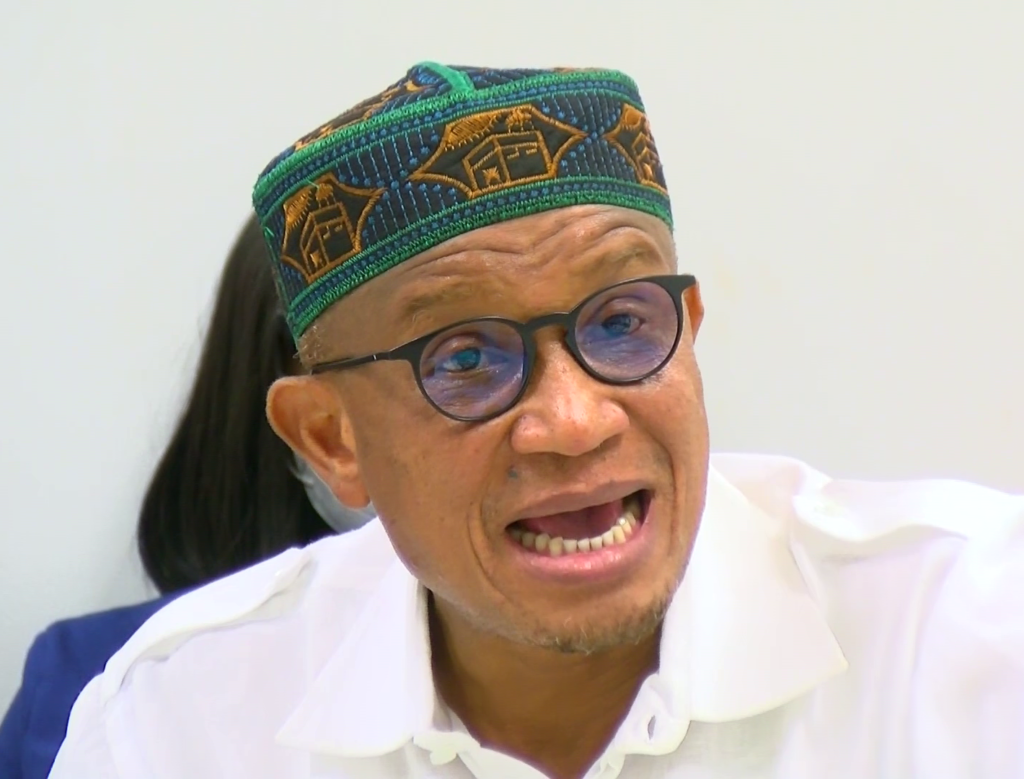[ad_1]
So where is the 600,000 barrels of crude oil from Russia that arrived at the Tema harbour? And who procured that cargo and for what purpose?
Three central questions have emerged since Bloomberg broke the story that “a cargo of Russian oil is heading for storage tanks in Ghana”.
The questions have become critical because of the clarity with which the sector regulator, the National Petroleum Authority (NPA) had declared any Russian oil business illegal.
“Let it be stated emphatically that Ghana is in with the international community on not doing business with Russia,” the NPA Chief Executive, Dr Mustapha Hamid declared recently at a media briefing.
He continued “so it cannot be the case that the NPA has sanctioned the docking or berthing of a Russian vessel. It is not possible…we are not, be assured going to grant permission for any Russian cargo to berth on our shores. That has to be explicit, unequivocal”.
Yet JoyNews can confirm that the Russian vessel, Theseus berthed at the Tema Port on Friday 28, February 2023.

Sources at the state-owned Tema Oil Refinery (TOR) have since told JoyNews that the facility has taken delivery of the 600,000 barrels of Russian crude oil in their tanks.
Another source at the NPA however insists they have not yet allowed the vessel to discharge its crude because of concerns over its Russian origin.
They are investigating the issues but in the meantime, they are convinced the true origin of the oil is Kazakhstan and not Russia.
The NPA’s ongoing investigations make the details from TOR even more interesting.
JoyNews has sighted a product discharge internal notice sent to TOR officers to receive the oil.
According to the notice, TOR tanks: 51, 54 and 71 were prepped for the crude. The notice was sent out late to staff at TOR directing that 6,500mc of the “crude oil will be used to displace the pipeline content of water and a mixture of crude oil into G51”.
15,000mts of crude oil was discharged into G54. At the time the notice was sent out to staff, a quality control officer had already been dispatched to board the vessel for sampling.
An important note accompanied the notice. It showed that there was no mention of the arrival of the Russian crude at the daily production meeting that morning.
The note explained that “Please we didn’t have the information early that is why we didn’t discuss it at the Production meeting”.
This was done in a hurry, although tracking data monitored by Bloomberg had shown the vessel was en route to Ghana.
Industry sources say the Russian crude belonged to the Tema-based Platon Gas Oil, a privately owned refinery established in 2014.
JoyNews understands Platon has a long-standing contract with TOR to use their facility for the storage of their crude.
Ghana currently produces about 140,000 barrels of crude a day. The Russian crude is more than four times what Ghana produces a day, worth more than $46.1 million.
Industry analysts say it might take more than four months for Platon to refine all of the 600,000 barrels.
Platon says it has 30 years of experience in the Oil industry operations in Europe. It refines petroleum products such as diesel, RFO and naphtha.
The 600,000 barrels of oil from Russia will be refined for sale on the Ghanaian market. There is nothing illegal about Platon’s business with TOR and its refining of oil.
This has become an issue only because of the questions about the origin of the oil.
If the vessel tracking origin data monitored by Bloomberg is proven, Ghana will be at serious risk of sanctions from the United States and its allies with Russian crude now in the country.
Last year, the U.S. ambassador to the United Nations, Linda Thomas-Greenfield warned that African countries could face sanctions if they trade in U.S.-sanctioned commodities such as Russian oil.
“Countries can buy Russian agricultural products, including fertilizer and wheat…if a country decides to engage with Russia, where there are sanctions, then they are breaking those sanctions.”
“We caution countries not to break those sanctions because then … they stand the chance of having actions taken against them,” she said.
DISCLAIMER: The Views, Comments, Opinions, Contributions and Statements made by Readers and Contributors on this platform do not necessarily represent the views or policy of Multimedia Group Limited.
[ad_2]
Source link


